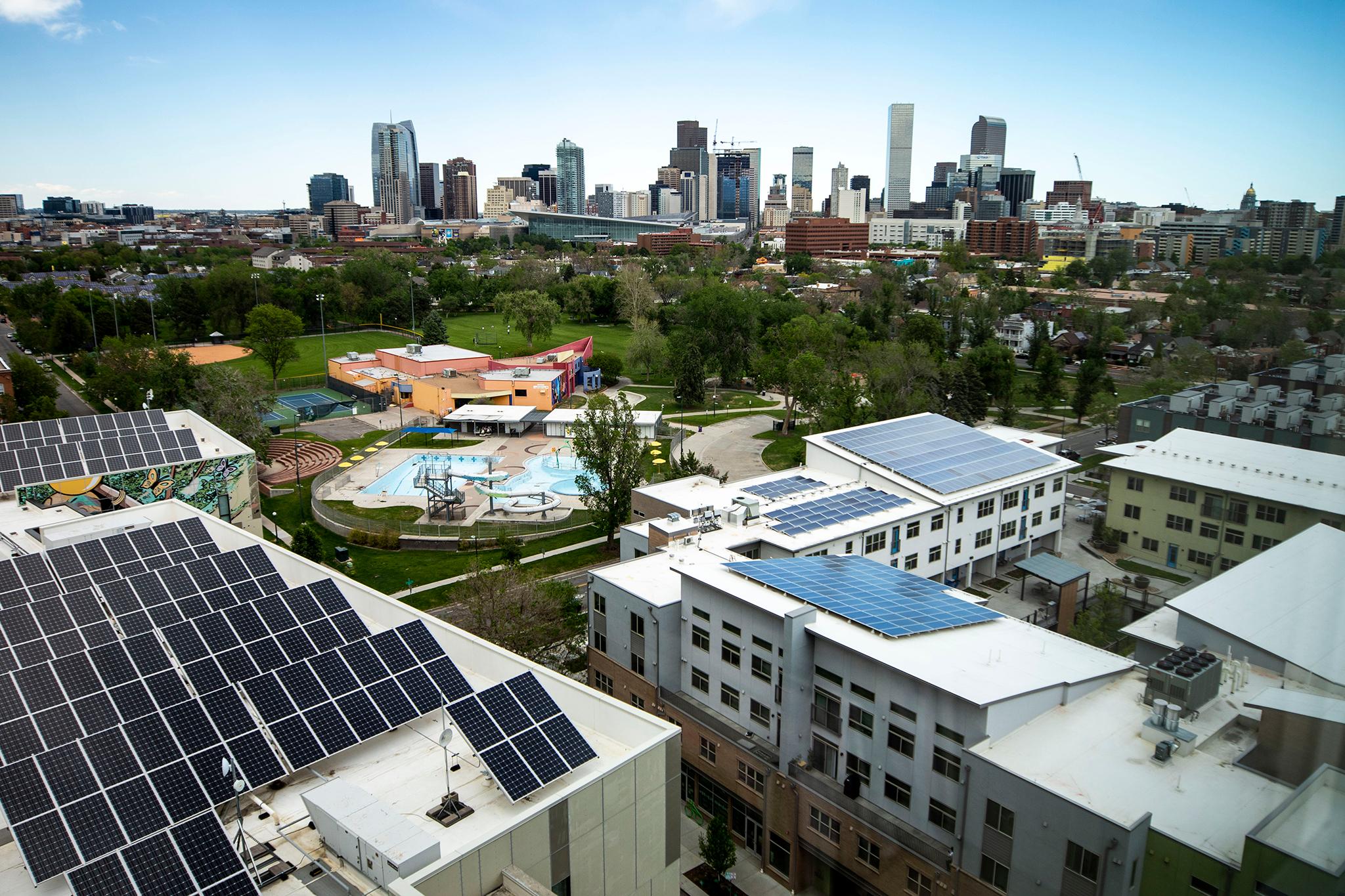The median closing price for homes in this city landed at $545,000 last month, according to the Denver Metro Association of Realtors. All kinds of workers probably couldn't afford at least half of the houses and condos that sold in June. (A quick math refresher, "median" means there were an equal number of sales below and above $545,000.)
Carrie Makarewicz, assistant professor of urban and regional planning at CU Denver, told us people's annual incomes generally need to equal at least a third of the price of any home they want to buy. The Colorado Department of Labor compiles estimates on incomes for 495 professions in Denver County. We looked at 90th percentile salaries in each category, the highest income tier in CDL's estimates, and found workers in 441 of those industries make less than $181,666, a third of the June median's price tag.
In other words, even the people making the most in these industries don't make what it would take to buy that imaginary median house on their own.
This includes elementary school teachers (whose 90th percentile workers can bring in $80,473 a year), soil scientists ($88,507), epidemiologists ($82,435), web developers ($123,029), mechanical engineers ($135,133), interior designers ($87,131), photographers ($88,339), police patrol officers ($108,214) and loan officers ($123,655). You can see the full list of professions that came up short in June here.
This all assumes a single, childless person in any of these fields is looking to buy a house or condo. Obviously, if that person is married to someone who works, they'd be closer to affording many homes on the market. If they had kids, those expenses would move them a little further away.
Charlie Brennan, deputy director of research for the Colorado Center on Law and Policy, said rising prices have widened the gap between those who can buy a home and those who are stuck renting.
"One thing it does do, is it pushes home ownership further and further out of reach for low-income households," he said. "The majority of low-income Coloradans and Denverites are actually renters."
Makarewicz had a more blunt assessment.
"I would claim it's totally out of reach," she told us. "They may never get there."
Further complicating things for renters is the reality that high valuations are fertile ground for displacement. People who rent homes in places like Elyria Swansea, where prices are among the lowest in the city, have routinely been approached by investors with cash offers. Some owners may be unable to resist selling while the market is hot. If they do, there's no guarantee their tenants can stay.
"When the price is rising rapidly, there are a lot of those single family homeowners who rent them who are tempted to sell and cash out and no longer deal with having to be a landlord," Makarewicz said. "People become displaced because they can no longer find an affordable rental."
Denver's already been heading in this direction, but the pandemic made things significantly trickier.
Brennan said there are some basic issues with supply and demand that have been brewing for years.
"Home production hasn't kept pace with demand," he said. But it's not just about numbers, it's also about what kinds of places we're building: "We have so many homes that are single-family homes. From a land-use perspective, that's not an efficient use."
He's hoping officials will find new ways to encourage greater density in the city.
But Makarewicz said the "the craziness of the pandemic" has simultaneously made housing more expensive as working families struggle with finances. Some remote workers could afford jump into Denver's market and escape New York and California during lockdowns, which hit supply. The recession made it harder for Denverites with non-remote jobs to pay the bills, which further removed them from home ownership. Meanwhile, supply chain disruptions have sent costs of construction materials sky high.
"That's all contributing," Makarewicz told us. "The outcome, yes, is that at the moment, unless we see a drastic drop in home prices, it doesn't look like a lot of people could ever afford to buy."
She also warned that the median price numbers don't quite get at the full picture. She's more interested in the cheapest sales in a given month, which might better suggest how accessible the market may actually be.
According to the city's latest data, the cheapest property to change hands in June was a condo in Goldsmith that went for $147,900. Fifty-three occupations offered 90th percentile salaries that would be too low to afford that.
The cheapest single family home sold in June was a house in Montbello that went for $320,000. That would be out of range for top earners in 318 professions.












